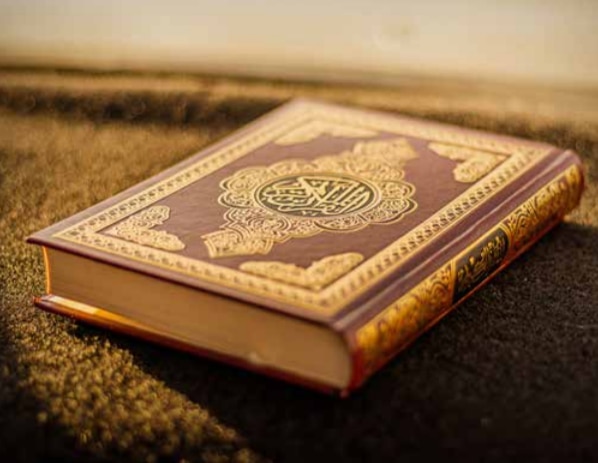
Before any conclusions are drawn, one should first familiarise oneself with the passage in question in the Holy Quran and its context, which is claimed to imply that a woman’s testimony would be worth only half that of a man. It reads:
یٰۤاَیُّہَا الَّذِیۡنَ اٰمَنُوۡۤا اِذَا تَدَایَنۡتُمۡ بِدَیۡنٍ اِلٰۤی اَجَلٍ مُّسَمًّی فَاکۡتُبُوۡہُ ؕ وَلۡیَکۡتُبۡ بَّیۡنَکُمۡ کَاتِبٌۢ بِالۡعَدۡلِ۪ […] وَاسۡتَشۡہِدُوۡا شَہِیۡدَیۡنِ مِنۡ رِّجَالِکُمۡ ۚ فَاِنۡ لَّمۡ یَکُوۡنَا رَجُلَیۡنِ فَرَجُلٌ وَّامۡرَاَتٰنِ مِمَّنۡ تَرۡضَوۡنَ مِنَ الشُّہَدَآءِ اَنۡ تَضِلَّ اِحۡدٰٮہُمَا فَتُذَکِّرَ اِحۡدٰٮہُمَا الۡاُخۡرٰی […]
“O ye who believe! when you borrow one from another for a fixed period, then write it down. And let a scribe write it in your presence faithfully; […]. And call two witnesses from among your men; and if two men be not (available), then a man and two women, of such as you approve as witnesses, so that if either of the two (women) should forget, then one may remind the other. […]” (Surah al-Baqarah, Ch.2: V.283)
What is immediately apparent is that it is a gross misconception to assume that this verse refers to the testimony of women per se, with critics of Islam even going so far as to claim that a woman would be worth only half as much as a man according to the Islamic image of women presented in this verse.
If one examines all the other verses of the Holy Quran with regard to witness testimony, one finds that no distinction is made with regard to gender (See 5:107; 4:16; 65:3; 4:136; 5:9; 70:34; 24:5; 24:7-9; 4:7 etc.). We also know from the Holy Prophetsa and his Khulafara and Companionsra that they accepted the sole testimony of a woman in many matters. This is how Islam upheld the dignity of women against the customs of pre-Islamic Arab society in which their opinion would not be considered in any matter whatsoever.
What is being conflated in relation to the verse under discussion are the two distinct concepts of, on the one hand, attestation or affidavit, called ishhad in Islamic legal jargon, referred to in this passage, and, on the other hand, testimony, called shahada. This legal provision to call a man and two women as witnesses if no two men are available thus clearly and exclusively refers to the situation of witnessing and testifying to monetary transactions and not to witness testimonies in and of themselves.
The verse also explicitly states the reason why not one but two women are placed opposite a man, namely that one woman may remind the other in case she forgets.
Not least since the popular science book “Why Men Don’t Listen and Women Can’t Read Maps” by Allan and Barbara Pease, even laypeople have realised that there are fundamental differences between women and men. However, some scholars wrongly infer from this verse and ahadith an alleged ontological inability of women to bear witness unaided and on their own, declaring forgetfulness or deficiency of intelligence to be their innate traits, which is definitely not the case. It is not about the physical or psychological condition of women, but about their social and cultural situation.
If one takes a holistic view of space and time, i.e. the past time from the emergence of Islam to the present with a spatial view of the entire world, it becomes clear that more women, in particular, remained relatively less literate than men, which is why they would usually have to rely exclusively on their memory when giving testimony. Moreover, since they were generally less involved in monetary transactions, they are more prone to error in this particular respect.
Above all, in patriarchal societies, which are still more common today, it is easier to put pressure on women to give false testimony. The Quranic ruling thus does not aim to devalue the reliability of women’s testimony in general, but on the contrary to strengthen and protect women in their role as witnesses and at the same time to ensure the greatest possible protection of creditors even in patriarchal social orders. It must also be clear that the Holy Quran prescribes dual testimony by women only at the point of such agreements being signed. Should a dispute arise later, any number of witnesses – from men or women – are deemed acceptable to be presented before the court.


Wonderful explanation